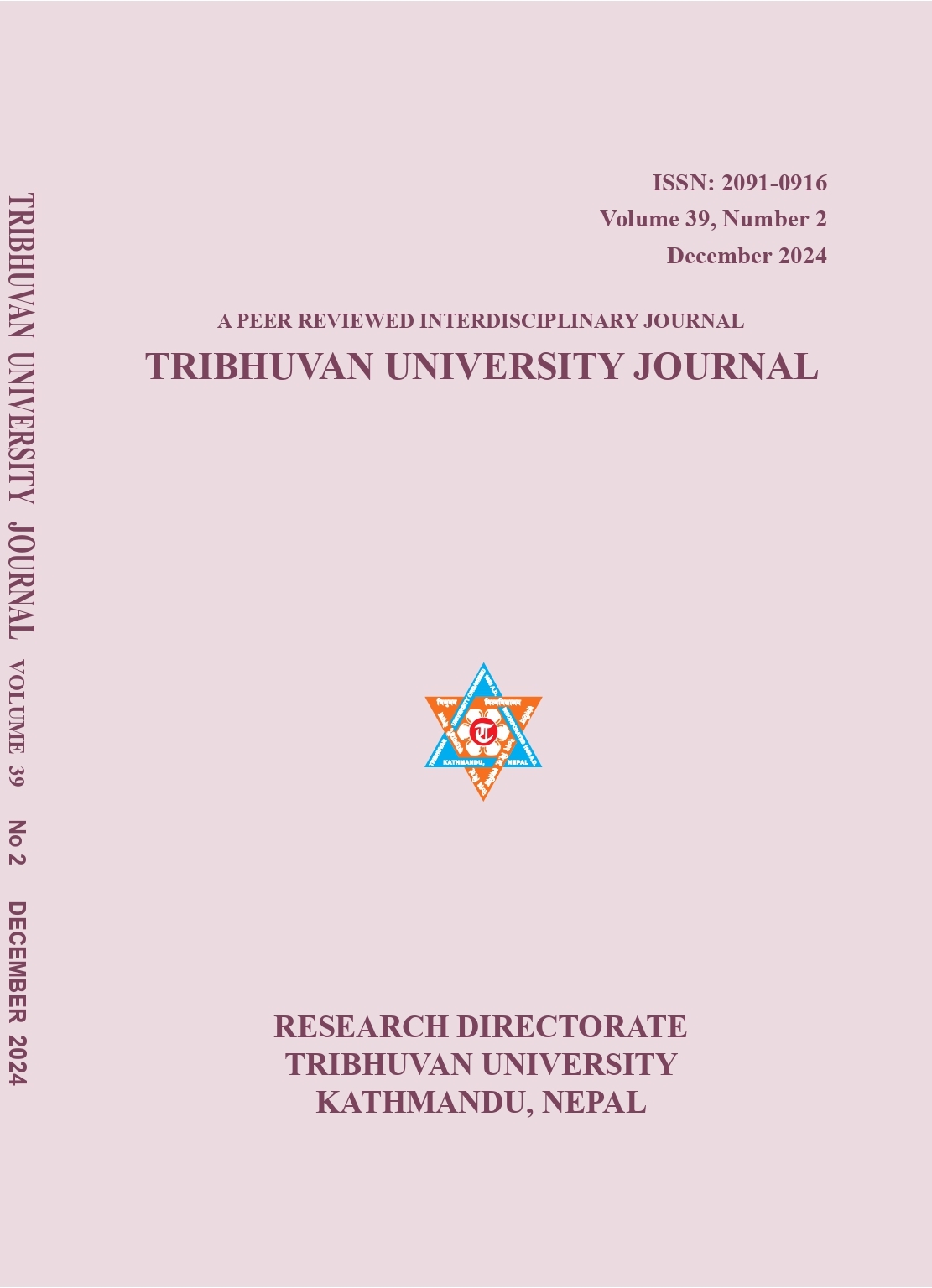Customary Governance and Social Dynamics in Natural Resource Management among Mountain Indigenous Communities in Upper Manang
DOI:
https://doi.org/10.3126/tuj.v39i2.72898Keywords:
social interaction, Indigenous Peoples, customary laws, nature, sustainable management, natural resourcesAbstract
This paper explores the role of customary governance in the sustainable management of natural resources within the Ngishyangba community of Upper Manang. The study is grounded in empirical research conducted in two phases, in 2014 and 2022, utilizing key informant interviews, focus group discussions, and observational methods to explore how traditional Mithewa system facilitate cooperation, resolve conflicts, and adapt to external pressures such as climate change, tourism, and state interventions. The study highlights intricate relationship between customary governance and social dynamics in the sustainable management of natural resources within this high-altitude region. The study explains the complex construct and interaction of Mithewa system, with the community and its surrounding, for the management of the natural resources and maintaining harmony in the society. In explaining the effective function of Mithewa, the study also highlights the concurrent worldview of Ngishyangba people, using ethno ecological framework. The framework unravels the Ngishyangba’s intrinsic relationship with their environment and how such interconnectivity is realized, through their worldview based on spirituality, traditional occupation, rituals and practices, and decision-making process. The Ngishyangba, Indigenous communities in Nepal exhibits robust and intricate connections with the land, forests, and other natural resources, spanning social, cultural, spiritual, religious, and economic dimensions. They have their own customary laws and practices in sustainable management of forest, agriculture, and pasture lands. These resources not only serve as the foundation of their livelihoods but are also deeply interwoven with their worldviews and ways of life. The Mithewa customary governance practices have been functioning effectively addressing socio-cultural conflicts, sustainable management of natural resources, and distribution. These governing bodies plays an integral role in sustaining traditional knowledge and customary practices in natural resource use and management. They also play an equally important role in maintaining the peace, unity and harmony within the community by addressing the grievances and conflicts arising in the community.
Downloads
Downloads
Published
How to Cite
Issue
Section
License

This work is licensed under a Creative Commons Attribution-NonCommercial 4.0 International License.
This license enables reusers to distribute, remix, adapt, and build upon the material in any medium or format for noncommercial purposes only, and only so long as attribution is given to the creator.
© Center for Research, Tribhuvan University

